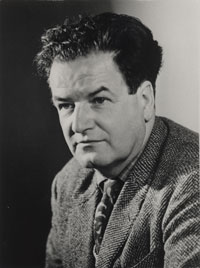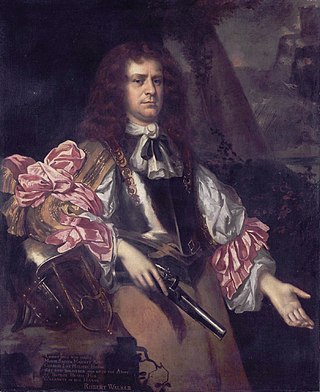Related Research Articles

Oliver Cromwell was an English statesman, politician and soldier, widely regarded as one of the most important figures in the history of the British Isles. He came to prominence during the 1639 to 1653 Wars of the Three Kingdoms, initially as a senior commander in the Parliamentarian army and latterly as a politician. A leading advocate of the execution of Charles I in January 1649, which led to the establishment of The Protectorate, he ruled as Lord Protector from December 1653 until his death in September 1658. Cromwell remains a controversial figure due to his use of the army to acquire political power, and the brutality of his 1649 campaign in Ireland.
A utopia typically describes an imaginary community or society that possesses highly desirable or near-perfect qualities for its members. It was coined by Sir Thomas More for his 1516 book Utopia, which describes a fictional island society in the New World.
Utopian and dystopian fiction are subgenres of science fiction that explore social and political structures. Utopian fiction portrays a setting that agrees with the author's ethos, having various attributes of another reality intended to appeal to readers. Dystopian fiction offers the opposite: the portrayal of a setting that completely disagrees with the author's ethos. Some novels combine both genres, often as a metaphor for the different directions humanity can take depending on its choices, ending up with one of two possible futures. Both utopias and dystopias are commonly found in science fiction and other types of speculative fiction.

Joshua Barnes FRS, was an English scholar. His work Gerania; a New Discovery of a Little Sort of People, anciently discoursed of, called Pygmies (1675) was an Utopian romance.

John Edward Christopher Hill was an English Marxist historian and academic, specialising in 17th-century English history. From 1965 to 1978 he was Master of Balliol College, Oxford.
The Ranters were one of a number of dissenting groups that emerged around the time of the Commonwealth of England (1649–1660). They were largely common people, and the movement was widespread throughout England, though they were not organised and had no leader.

Looking Backward: 2000–1887 is a utopian science fiction novel by Edward Bellamy, a journalist and writer from Chicopee Falls, Massachusetts; it was first published in 1888.

Anarchism in the United Kingdom initially developed within the religious dissent movement that began after the Protestant Reformation. Anarchism was first seen among the radical republican elements of the English Civil War and following the Stuart Restoration grew within the fringes of radical Whiggery. The Whig politician Edmund Burke was the first to expound anarchist ideas, which developed as a tendency that influenced the political philosophy of William Godwin, who became the first modern proponent of anarchism with the release of his 1793 book Enquiry Concerning Political Justice.

Chris Matthew Sciabarra is an American political theorist born and based in Brooklyn, New York. He is the author of three scholarly books—Marx, Hayek, and Utopia; Ayn Rand: The Russian Radical; and Total Freedom: Toward a Dialectical Libertarianism—as well as several shorter works. He is also the co-editor, with Mimi Reisel Gladstein, of Feminist Interpretations of Ayn Rand and co-editor with Roger E. Bissell and Edward W. Younkins of The Dialectics of Liberty: Exploring the Context of Human Freedom. His work has focused on topics including Objectivism, libertarianism, and dialectics.

Utopia is a work of fiction and socio-political satire by Thomas More (1478–1535), written in Latin and published in 1516. The book is a frame narrative primarily depicting a fictional island society and its religious, social and political customs. Many aspects of More's description of Utopia are reminiscent of life in monasteries.
Propertarianism, or proprietarianism, is a political philosophy that reduces all questions of law to the right to own property. On property rights, it advocates private property based on Lockean sticky property norms, where an owner keeps their property more or less until they consent to gift or sell it, rejecting the Lockean proviso.
Laurence Clarkson (1615–1667), sometimes called Claxton, born in Preston, Lancashire, was an English theologian and accused heretic. He was the most outspoken and notorious of the loose collection of radical Protestants known as the Ranters.

The Humble Petition and Advice was the second and last codified constitution of England after the Instrument of Government.

Lieutenant-Colonel George Joyce was an officer and Agitator in the Parliamentary New Model Army during the English Civil War.
Gregory Claeys is Professor Emeritus of History at the University of London.
Religious communism is a form of communism that incorporates religious principles. Scholars have used the term to describe a variety of social or religious movements throughout history that have favored the common ownership of property.
Lyman Tower Sargent is an American academic and professor emeritus of political science at the University of Missouri-St. Louis. Sargent's main academic interests are utopian studies, political theory, American studies and bibliography. He is one of the world's foremost scholars of utopian studies, founding editor of Utopian Studies, serving in that post for the journal's first fifteen years, and recipient of the Distinguished Scholar Award from the Society for Utopian Studies. Sargent was educated as an undergraduate at Macalester College and a graduate student at the University of Minnesota.

Peter Chamberlen M.D. (1601–1683), known as Peter the Third, was an English physician. The obstetrical forceps as invention has been credited to the Chamberlen family: the earliest evidence of what was a family trade secret points to his having it in 1630. He continued the family tradition of trying to bring the profession of midwifery under their control. His writings blend ideas associated with the Fifth Monarchists and Levellers with social schemes of his own with a utopian flavour.
S. D. Chrostowska is a Canadian writer and intellectual historian of modern critical thought. She holds a professorship in 20th century continental thought at York University in Canada.
References
- ↑ R. Hutton's review of J. C. Davis, Oliver Cromwell (London, 2001), H-Net Book Review, H-Net: Humanities & Social Sciences Online, August 2001.
- ↑ Liberty, Authority, Formality: Political Ideas and Culture, 1600-1900
- ↑ de Lario, Damaso. 'An Appreciation of Colin Davis', in Morrow, John, Scott, Jonathan (eds.) Liberty, Authority, Formality. (2008) Imprint Academic. ISBN 9781845401351.
- ↑ https://www.uea.ac.uk/hum/Old+people+pages+(hidden)/hispeopleold/Emeriti/Davis [ dead link ]
- ↑ Publisher's description of Davis' Oliver Cromwell
- ↑ E P Thompson's review of Fear, Myth and History: The Ranters and the Historians
- ↑ Review of Utopia and the Ideal Society: A Study of English Utopian Writing, 1516-1700
- ↑ biography